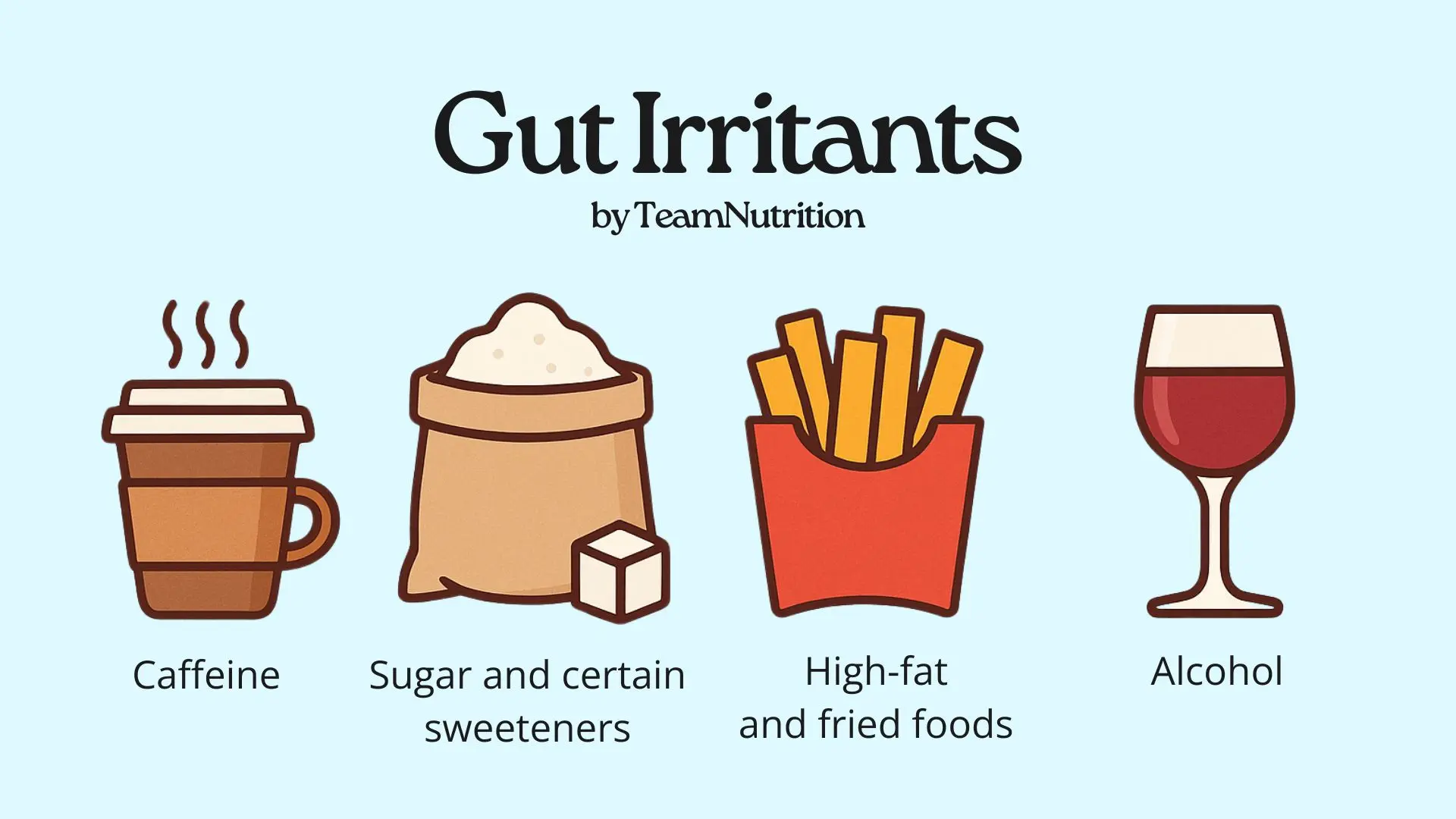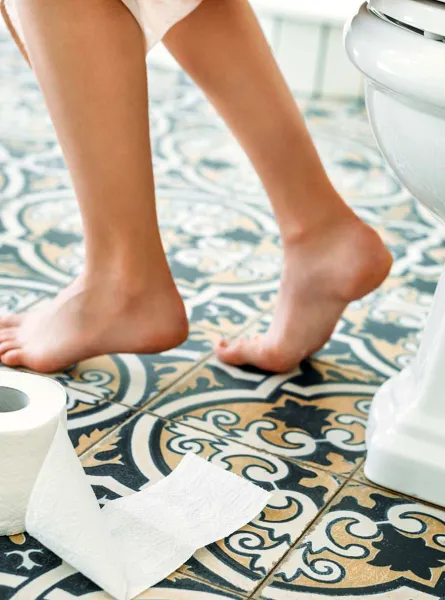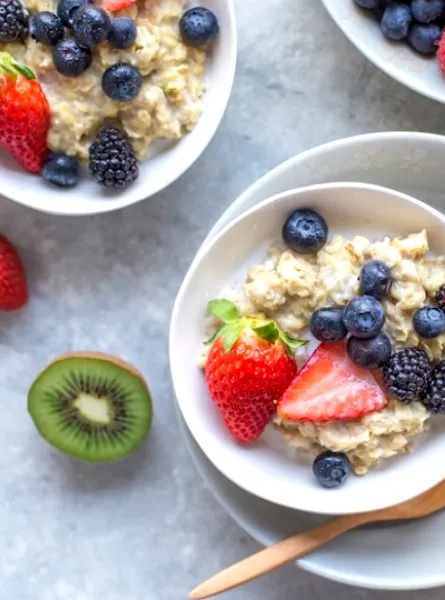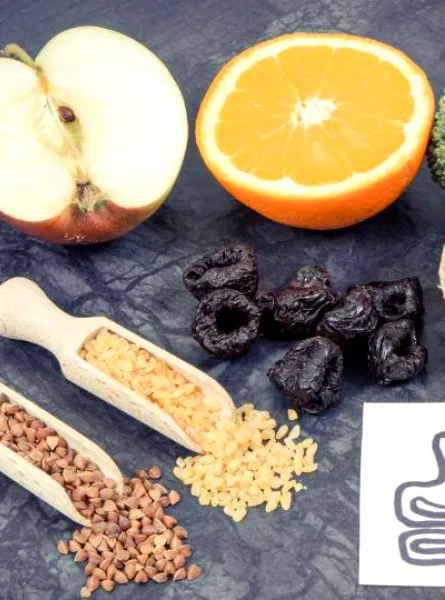
Diarrhea can be a real challenge in daily life. It is defined as having more than three loose or watery stools per day.
In most cases, it’s temporary. But when it lasts for more than two to four weeks, it’s called chronic diarrhea. It can be caused by a food intolerance, irritable bowel syndrome, or certain intestinal diseases such as celiac disease or inflammatory bowel diseases.
The good news? Simple, practical dietary changes can help relieve symptoms and restore greater digestive comfort. Here’s how you can take action day to day.
1. Focus on Soluble Fibre: Your Allies for Soothing the Digestive System
Soluble fibre helps slow down stool movement and makes them more formed. That’s the opposite of insoluble fibre, which tends to speed up transit.
How Can You Easily Add More?
- At breakfast: add chia seeds or ground flaxseed to oatmeal or a smoothie. Try our chocolate, coconut and tahini protein oatmeal or a chia pudding.
- As a snack: go for fibre-rich snacks like energy bites, homemade muffins, or even a fruit and flaxseed smoothie.
- At lunch or supper: Get inspired by our trout orzo salad or this
protein-packed lentil pasta salad. - For dessert: finish your meal with something sweet and high in fibre, like our strawberry bark.
2. Stay Well Hydrated: An Essential Priority
When you have diarrhea, your body quickly loses water and electrolytes. To prevent dehydration, it’s important to drink at least 8 to 10 cups a day, or about 2 to 2.5 litres, and even more if your diarrhea is frequent or severe.
What Should You Drink?
Water should be your first choice, but also try broth, mild tea, diluted juice (half water, half juice), or homemade sports drinks, which help replace lost electrolytes.
Tips for Drinking More:
- Always keep a water bottle handy (at your desk, in your bag, in your car).
- Start your day with a big glass of water.
- Drink a glass of water with every meal and snack.
- Set reminders on your phone.
- Give yourself little challenges (e.g., finish your bottle before lunch).
- Flavour your water with lemon, strawberries, mint, or cucumber.
3. Identify Irritants: Small Adjustments That Make a Difference

When you have diarrhea, some foods and drinks can further irritate the gut or overstimulate your bowels, which keeps symptoms going.
The goal isn’t to avoid these foods forever, but rather to temporarily limit them, especially when your symptoms are active.
Here’s what to watch for:
-
Caffeine, found in coffee, strong tea, and energy drinks, can increase intestinal contractions and make stools even more frequent.
💡 Try decaf coffee, gentle herbal teas (like chamomile or mint), or simply lemon water instead.
-
Large amounts of sugar and some sweeteners, like sorbitol and mannitol (often found in sugar-free products), draw water into the intestine and can make diarrhea worse.
💡 Read labels and choose simple, natural products whenever possible.
-
Fatty or fried foods, such as fries, pastries, cream, or very rich cheeses, can speed up digestion and lead to loose stools.
💡 Go for light meals prepared simply (steamed, boiled, or grilled) with minimal added fat.
-
Alcohol can worsen irritation in the digestive tract and contribute to dehydration.
💡 Avoid alcohol during episodes of diarrhea and stick with hydrating drinks like water, broth, or diluted juice.
4. Cut Back on Insoluble Fibre: Give Your Gut a Break
Normally, insoluble fibre is beneficial for healthy digestion. But when you have diarrhea, it can be too stimulating. The idea is to reduce it temporarily, until your system finds its balance again.
Limit These:
Whole wheat products, raw vegetables (especially cabbage, broccoli, green peas), nuts and uncooked whole grains (like wheat bran, for example).
Instead, go for cooked and peeled vegetables like squash, carrots, or green beans, which are easier to digest.
5. Probiotics: Good Bacteria That Make All the Difference
Probiotics are good bacteria that live in your intestines. They help keep things balanced, support digestion, and can shorten the duration of diarrhea and reduce the number of loose stools.
Where Can You Find Them?
You’ll find them in several fermented foods: yogurt, sour cream, kefir, miso, tempeh, fermented vegetables like kimchi or sauerkraut, as well as in drinks like kombucha or homemade tepache.
They’re also available as supplements. For the best product, it’s a good idea to consult a dietitian.
Tip: Add kefir or yogurt to your breakfasts, or replace cream in your recipes with a bit of sour cream. Easy on your gut and tasty too!
Regain Lasting Digestive Comfort With the Help of a Dietitian
Diarrhea can have many causes, but a few simple changes to your diet can make a big difference. Focusing on soluble fibre, staying hydrated, limiting irritants and adding probiotics are all ways to soothe your digestive system naturally.
Important: If your symptoms last more than two to four weeks, don’t hesitate to consult a healthcare professional for a full assessment.
Would you like support to adapt your diet to your needs?
Our dietitians are here to guide you with care and expertise.
Book an appointment with a registered dietitian today to get back your digestive comfort!





